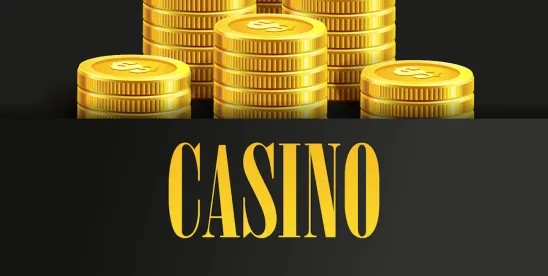On Sept. 23, 2024, the First Circuit Court of Appeals affirmed the district court’s entry of summary judgment for the defendant on the plaintiff’s Chapter 93A, Section 9 claim in Schuster v. Wynn Resorts Holdings, LLC. In doing so, the First Circuit assessed how a casino’s required “internal controls” and the Massachusetts Gaming Commission’s Regulations interact with Chapter 93A.
The plaintiff challenged how the defendant redeemed slot-machine tickets at its casino. As the court explained, when a patron finishes using a slot machine, the patron presses a button and is provided a “TITO ticket” indicating the value of the patron’s money at the time. The patron can redeem the ticket or use it to continue gaming. To redeem, the patron may either take the ticket to a cashier, who will exchange it for dollar bills and coins equal to the full value of the ticket, or use a kiosk. The kiosks, however, are coinless – meaning they will only dispense dollar bills and provide another ticket for any remaining value in coins, which patrons can redeem through a cashier.
In his complaint, the plaintiff asserted (for himself and a putative class) that the defendant’s ticket-redemption practices violated the defendant’s “internal controls” (as required by 205 C.M.R. § 138.02) and Massachusetts Gaming Commission regulations and, as a result, violated Chapter 93A, Section 2. According to the plaintiff, the defendant was “stealing money” from patrons because the kiosks did not dispense coins. When the plaintiff used the kiosk, he would either use the remaining value on the new ticket for more gaming or discard them. After the plaintiff filed the complaint, the Massachusetts Investigations and Enforcement Bureau initiated an investigation, which led the defendant to place signs by the kiosks indicating that they only dispense dollar bills and tickets for coins, instructing patrons to take the ticket to a cashier for redemption.
Defendant later moved for and prevailed on a motion for summary judgment. The First Circuit reviewed the district court’s grant of summary judgment de novo and affirmed. The court’s analysis of Chapter 93A and plaintiff’s arguments on appeal are instructive for other gaming establishments to assess their own internal controls (which cover matters other than kiosk redemption practices) and what risks their practices may pose under Chapter 93A.
For example, when assessing whether the kiosk redemption practices violated Section 2, i.e., whether they were unfair or deceptive, the court recognized that Chapter 93A is broadly written and that it is “neither necessary nor sufficient that a particular act or practice violate common or statutory law” to violate Section 2. As to unfairness, state and federal courts consider whether the conduct (1) “is within at least the penumbra of some common-law, statutory, or other established concept of unfairness”; (2) “is immoral, unethical, oppressive, or unscrupulous”; and (3) “causes substantial injury to consumers or other businesses.” Here, according to the plaintiff, the kiosk redemption practices violated Section 2 because they did not comply with the defendant’s internal controls and the Commission’s regulations (seemingly a per se violation of Section 2, although the regulations themselves do not make regulation violations unfair or deceptive like other regulations do), or because they were otherwise immoral, unethical, oppressive, or unscrupulous. Ultimately, the court disagreed that the practices ran afoul of the defendant’s internal controls or the regulations as a matter of fact.
That, however, did not end the court’s analysis. The plaintiff alleged the kiosk redemption practices were immoral, unethical, oppressive, or unscrupulous because they allegedly encouraged undesirable slot play and Mass. Gen. Laws c. 23K, § 1(8) required the defendant to demonstrate its “commitment to efforts to combat compulsive gambling[.]” In rejecting plaintiff’s immorality-based arguments, the court noted that the unfairness standard under Chapter 93A is imprecise, but the focus should be “on the nature of challenged conduct and on the purpose and effect of that conduct,” the equities between the parties, the plaintiff’s conduct, and what the defendant knew or reasonably should have known. Based on that analysis, the court concluded the plaintiff had not proven the kiosk redemption practices were unfair. The court, however, did not address the plaintiff’s other assertion under c. 23K because the plaintiff had waived it on appeal by not raising it below.
The court also addressed whether the kiosk redemption practices were deceptive because the defendant used the words “ticket redemption” to describe them. In finding they were not, the court explained that a practice is deceptive “if it possesses a tendency to deceive” and “if it could reasonably be found to have caused a person to act differently from the way [they] otherwise would have acted”; provided, however, that the effect on a person’s actions causes the person harm. Here, the practices were not deceptive and there was a clear way a patron could redeem a ticket(s) for dollars and coins. The extra step of taking a second ticket to a cashier to redeem for coins did not in any way make the term “ticket redemption” misleading – nor did it appear to cause any harm.
Although the defendant prevailed in this case on summary judgment, a different result could have occurred if the practices did not comply with the defendant’s internal controls or if they otherwise met the definitions of unfairness or deception under Section 2. Furthermore, it remains to be seen what the plaintiffs’ class-action bar may do with the waived argument that the defendant’s practices ran afoul of committing to efforts to combat compulsive gambling. In that regard, the Schuster decision does not address the other elements of the plaintiff’s prima facie Chapter 93A, Section 9 claims – that a Section 2 violation actually caused the plaintiff (or others in a putative class case) to suffer some cognizable separate and distinct injury under Section 9, as required by Tyler v. Michael Stores, Inc. and its progeny.



 />i
/>i

